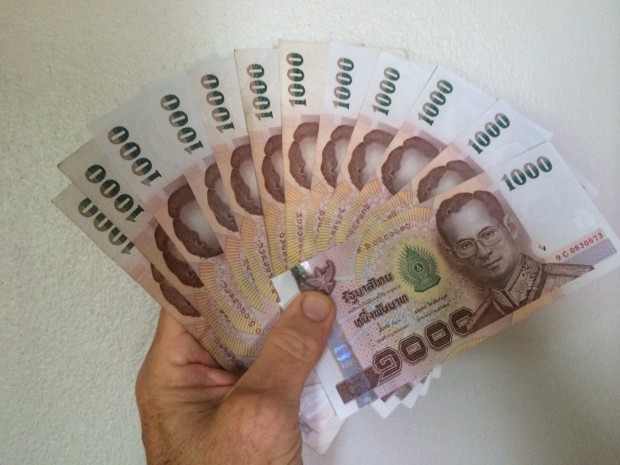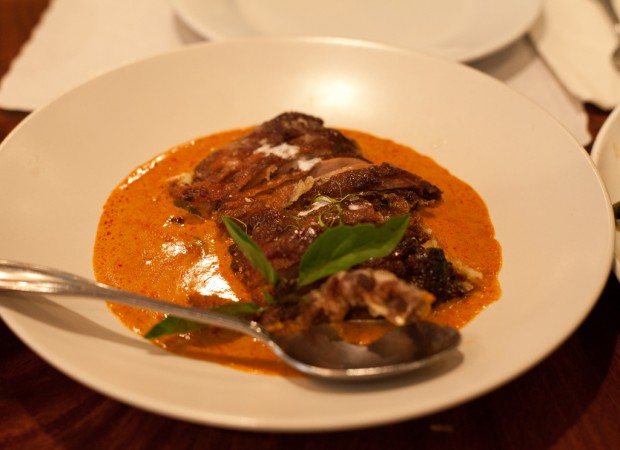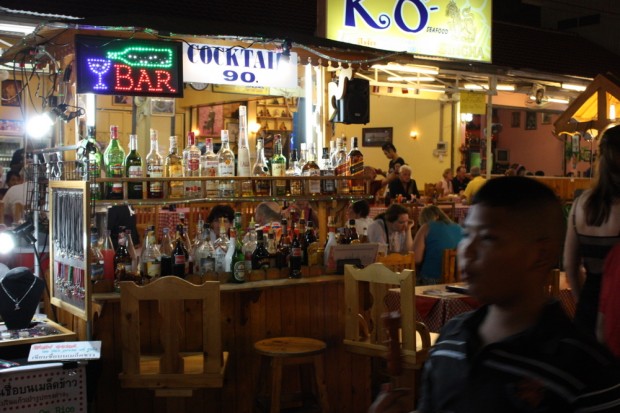
There isn’t one budget for expats because everyone is different. Let’s look at the costs of the major expenditures in everyone’s budget: housing, food, utilities, transportation, medical and entertainment expenses. Phuket, where I live, and Bangkok are the most expensive areas to live in Thailand. Every expense across the board is probably 20% higher than living in Northern Thailand. Here are estimates of budget costs in Phuket:
Housing
Let’s assume you’re renting. Non-Thais can’t own land here, so most expats rent.
You can rent a spacious villa with a sea view for USD 1500 a month and up. You can live like a millionaire for USD 2500 a month with a big house and pool. Renting a nice little two bedroom house, you’re probably looking in the USD 400 range. It depends on what area you want to live. On the beach, it’s going to be more, maybe a lot more.
If you’re single, don’t cook and only need a room, prices start in the USD 250 a month range. I know many people who live comfortably just renting a room. They eat at inexpensive food stalls and don’t want anything bigger. Lifestyle and pocketbook decisions are the determining factors here.
Food

Image credit: Neil Conway
Food in Thailand is delicious and inexpensive, if you eat Thai food. My favourite food at a little Thai restaurant is duck curry over rice for USD 1.60. Noodle soup with chicken is USD 1. If I go down to the pub and have a burger with fries it’s USD 5. A pizza is USD 8. If you’re eating Thai food at the average restaurant, you’re paying half the cost of farang food. It isn’t hard to find western food, but it’s generally not as good as what you would expect to receive at home. Anything that’s imported is significantly higher. I’ve found adequate Italian restaurants. Local beef isn’t very good. If you want a good steak, you buy imported beef and it’s expensive. I don’t eat that much beef anymore.
Also read: 10 Delicious Food that Everybody Should Try When in Thailand
I eat mostly fresh Thai food prepared at home. We go to the open air markets a couple times a week. This would be similar to a farmers market with different stalls for meat, fish, vegetables and fruit. There are also supermarkets just like in the West. You can also buy in bulk at stores similar to Costco. All the staples are available, but the quality that I see at home, isn’t there. I really miss heirloom tomatoes, for example. Tomatoes are tasteless. I’ve never had sweet corn here. Bread leaves a lot to be desired. Thais don’t eat much bread. You can get a loaf of bread anywhere, but you have to find a farang bakery to get good bread. We bake our own. I have to search for peanut butter. A can of pork and beans is 25% higher. Cheese is a sad story. Wine is a sadder story.
Utilities
I pay about USD 15 a month for electricity. The biggest expense on utilities comes from air conditioning. Everyone uses fans. If I had the air conditioner on all the time I wouldn’t be surprised if the bill was USD 125 a month. Thailand is warm, humid and downright hot often. I’ve gotten used to it. Some homes need to be air conditioned. It all depends upon location and personal preferences. My water bill is USD 7 a month. Internet runs around USD 25 a month. Many places will include it in the rent. I buy the cheapest cable TV connection because I don’t watch much TV, but my girl does. We get all the Thai channels and a couple of English channels for USD 10 a month. The most expensive cable options that include HBO, Sports and movie channels is USD 55 a month.
A new Honda Click motorbike is USD 1700. You can pick up a used one for half that amount. The Click is probably the most popular motorbike here. It has an automatic transmission and is perfect for around town use. Everyone drives a motorbike. They get about 100 mpg. Maintenance and repair are negligible. I don’t put on a lot of miles, so I spend less than USD 20 a month on gas. You definitely don’t need to own a car. Less than half of my friends own cars. Expect similar costs to the west if you do own a car, although repairs are much less because labour costs are low.
Entertainment

Image credit: Krista
The wild card in any budget is the entertainment expense. From the occasional happy hour beer to a different girl every night, it’s a personal decision. Thailand can be great fun with too many places to blow money. Movie theatres have ticket prices similar to the US. There are golf courses all over Thailand. A round of golf is about the same as the West. There is cart racing, fishing, lawn bowling, surfing, snorkelling, mountain biking, bungee jumping and shooting ranges. I can’t think of any entertainment that you can’t find here and it’s usually cheap. There are countless outdoor recreational activities.
The entertainment budget is a personal thing. Women and booze are the variables for most. A bottle of beer in a bar is in the USD 2 range. A lot of the socialising happens at the local pub.
Medical
A good medical insurance policy will cost about USD 1500 for a year for someone 60 years old. This will cover any hospital stay and treatment. Any outpatient doctor visits you’ll pay for. A doctor’s visit will cost about USD 25. That was my deductible on my USD 500 a month health insurance policy in the US. The most important difference in the West vs. Thailand is the role of the pharmacist. Many drugs are available over the counter in Thailand. The pharmacist plays an important role here by diagnosing common ailments and prescribing medication. This eliminates half the trips to the doctor. Many of the drugs are generic and inexpensive. A prescription for amoxicillin is USD 4. Pain medication is controlled and you’re probably going to have to go to a hospital and see a doctor to get it.
There is a range of quality on the hospitals in Thailand. Private hospitals and the doctors are generally very good. Expect a semi private room and nursing care like the West. If you’re in a public hospital after an accident, you’ll end up in an open public ward with the locals. Family members will be sleeping beside the patient and taking care of them. It looks pretty chaotic to me but the healthcare is acceptable, if that’s the way you have to go. It is cheap compared to hospital costs in the US. People often come here for cosmetic surgery and combine it with a vacation.
Also read: Why Thailand is My Number One Dream Destination
Summarising budget costs
No one’s budget is going to be the same because of individual lifestyles, but here goes:
Low budget: USD 1000 a month
This would be living in a room or a sharing a small apartment (USD 300). Eating mostly street cart food or in low cost Thai restaurants (USD 100), no insurance, internet connection and utilities (USD 35), gas for a motorbike (USD 15), miscellaneous expenses (USD 100). That’s USD 550 before the all-important entertainment expense. Depending upon how much you drink and how many girlfriends you have that puts you well under USD 1000 a month. Many live the low budget lifestyle here.
Medium budget: USD 1800 a month
Someone on a medium budget is living in a two bedroom house (USD 500). Eats at a restaurant a couple times a week, but prepares food at home. This retiree pays monthly medical insurance (USD 125), utilities (USD 50) and gas for a motorbike (USD 20). This guy has a girlfriend. He doesn’t want her to work so he gives her USD 400 a month. A Thai girl is going to keep house and make meals. With a trip to the pub a couple of times a week and the increase in food expense, you could expect your budget to be in the USD 1800 a month range.
High budget: USD 2500 a month
This is a budget for someone who lives at a luxury condo with a pool or rents a larger house (USD 1000 a month). He has a car and motorbike with all those expenses. This would be all the expenses of the medium budget with a more expensive house and a car. This is a very comfortable life style and similar to what you might expect in the US for three times this amount.
Thailand is a great value for the expat retiree. I can’t imagine living anywhere else.
Also read: I Moved to Thailand and Never Looked Back
Contributed by Kamalala.





